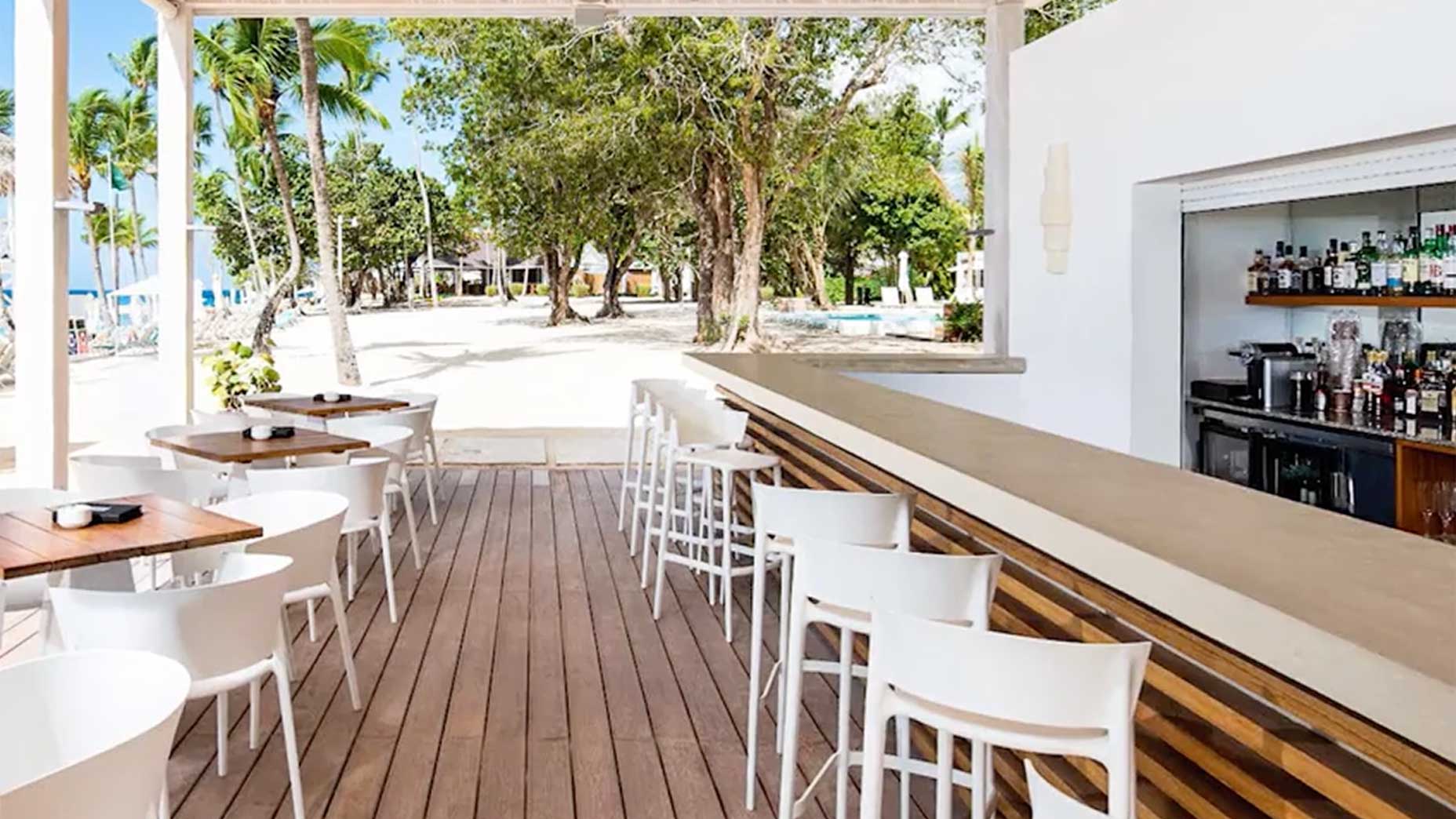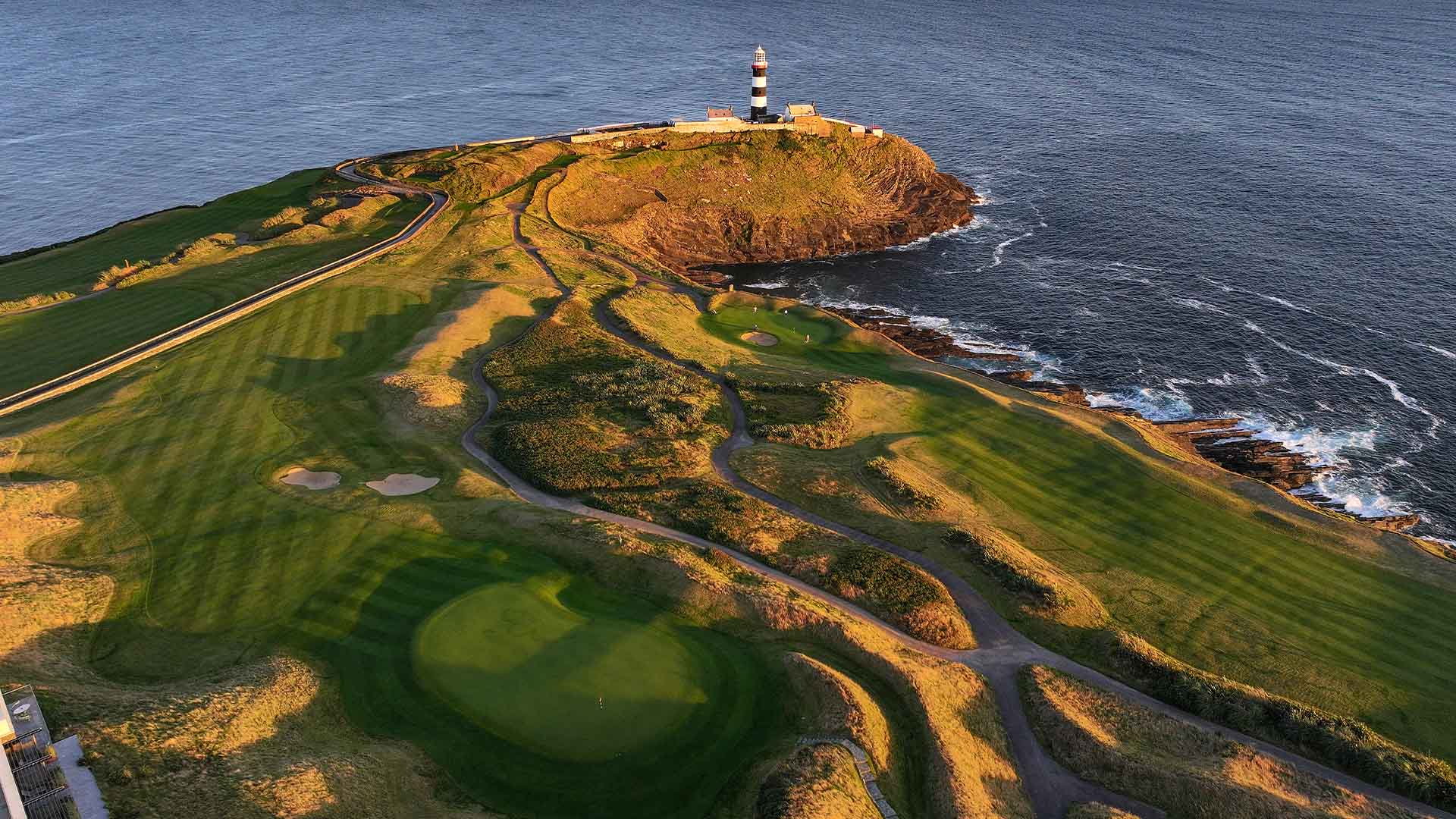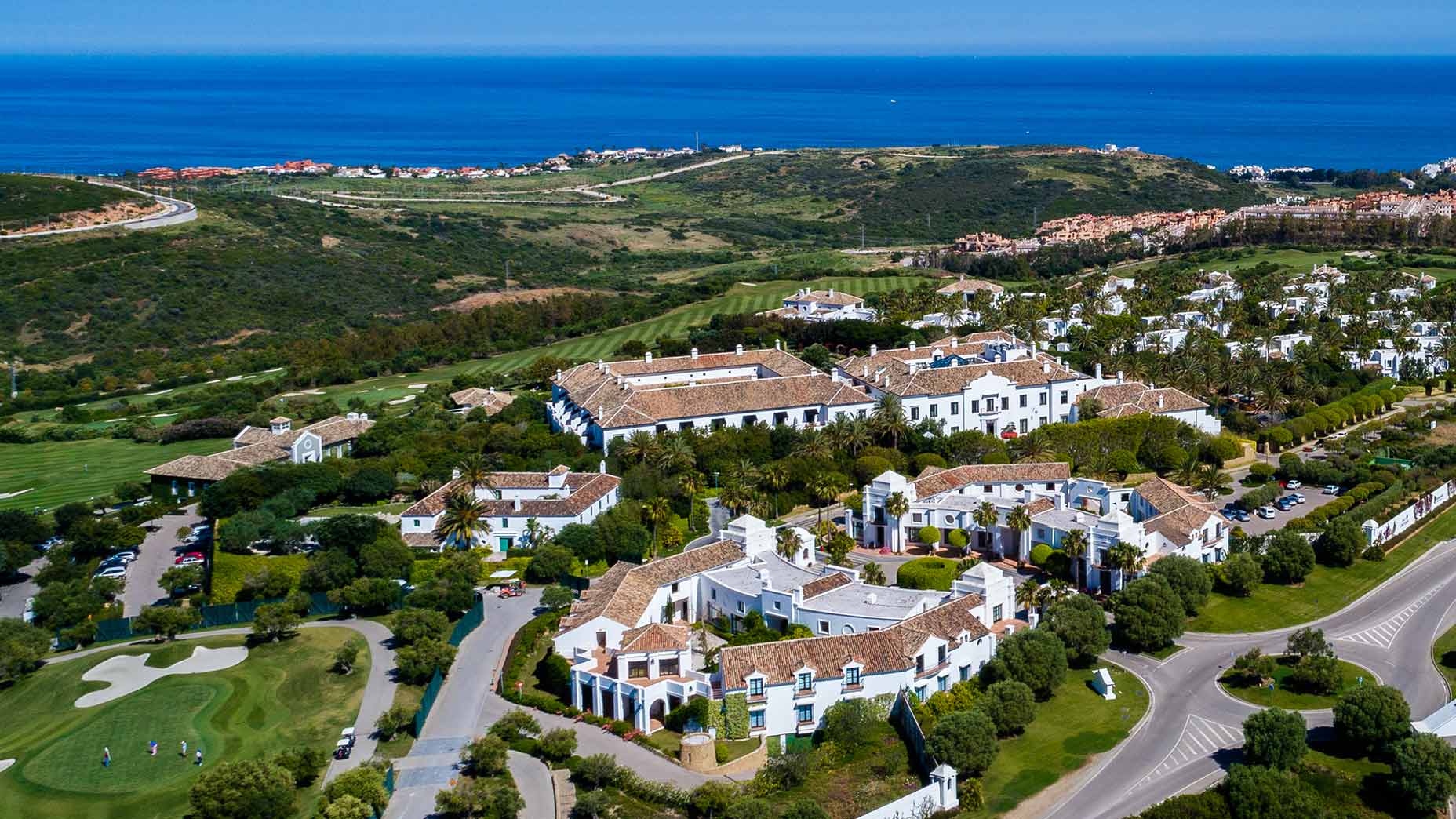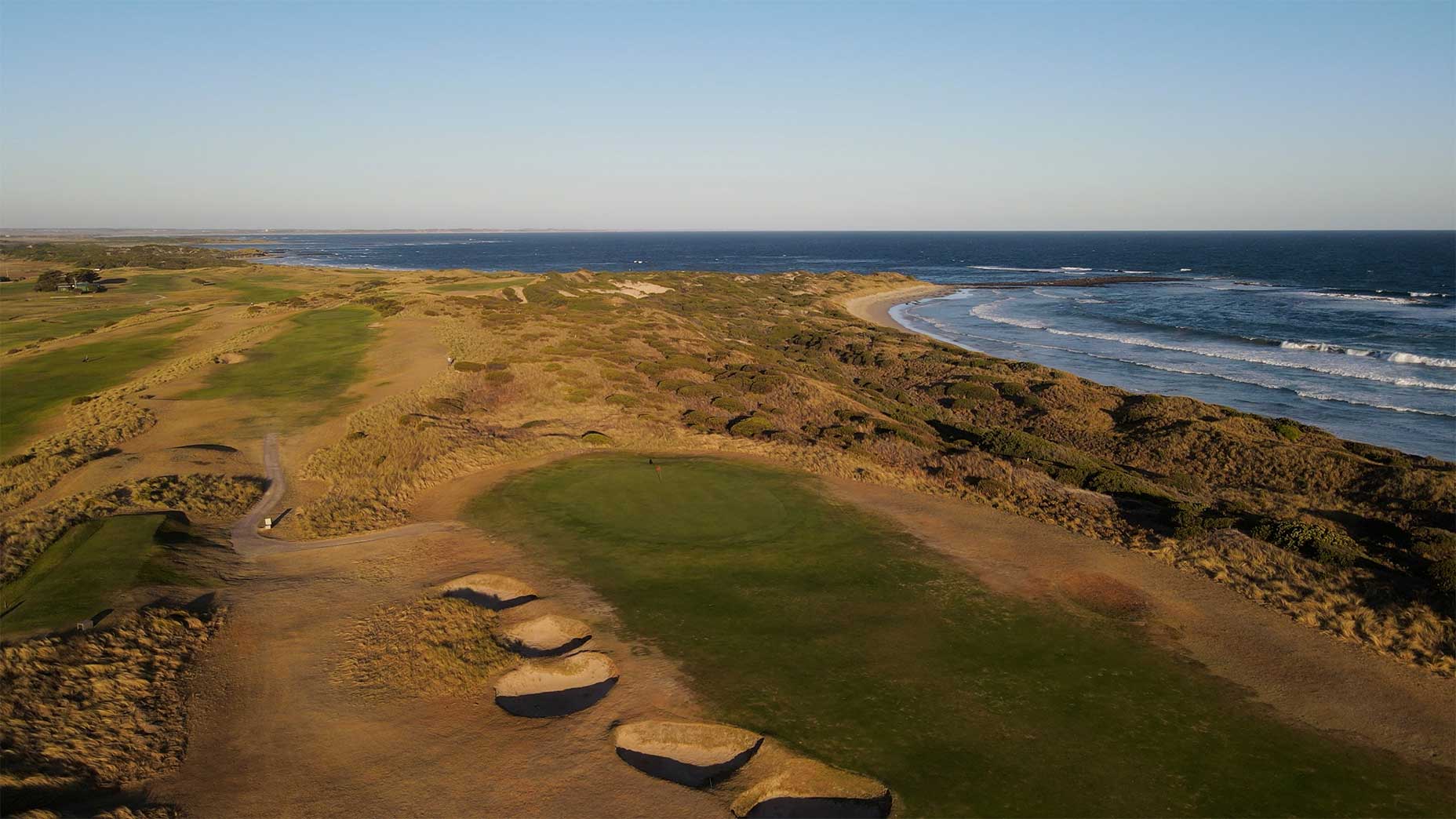 My Masters gift exchange at an Australian golf course in the middle of nowhere
My Masters gift exchange at an Australian golf course in the middle of nowhere
Here’s what it’s like to play a round at South Korea’s stunning South Cape Owners Club
The journey to South Cape builds anticipation like few courses I’ve visited anywhere in the world. Not only have you taken yourself to Seoul, South Korea, but you’ve then more than likely hopped on the one-hour Korean Air flight to Sacheon. This military airport shares the runway with a tiny commercial terminal that receives a couple of flights a day. No pictures allowed, we’re told as we land.
After landing at Sacheon, I’m waved at by a seasoned Korean gentleman who appears to not only to be very fashionably dressed, but also has a purple tint in what would otherwise be classified as silver hair. His lovely wife of the same vintage is smartly but subtly dressed, and it turns out they were on my flight. The man is JB Chung, owner and visionary of our destination, South Cape Owners Club.
Along with perhaps 30 or so other guests that are also headed to the resort, we hop on the luxury club coach transfer for the hour-long drive around the inlets of Namhae. The scenery is like something out of Pirates of the Carribbean crossed with the James Bond classic, The Man with the Golden Gun. Simply stunning.
JB is a very private man, and although his English is excellent, we talk little about his founding of the resort for his fear of keen ears on the bus. He likes to keep a low profile — at least as much as a man with purple hair can!
We soon arrive to the most incredible clubhouse I’ve ever seen. To stick with the James Bond theme, it’s like an underwater futuristic baddie layer, that happens to be on top of a huge cliff overlooking the surrounding islands. Clean, flowing lines are the order of the day for the structure itself, accented by sharp glass corners. It is a marvel of architectural design. The clubhouse has turned the dial to 11, with guests taking turns for the ubiquitous Instagram shot with the reflection pool that greets our arrival.
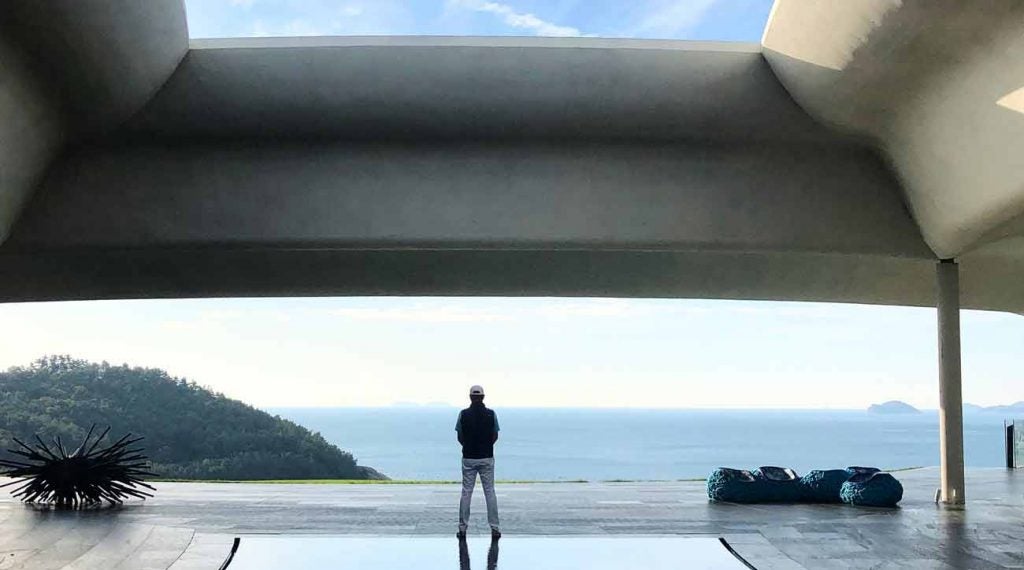
After a killer lunch of Namhae beef — which incidentally leaves the Kobe beef I had in, well, Kobe, for dead — we head to the first tee to get out before the other new arrivals. We are greeted by a stunning drop shot opener, and after our caddie-led group stretch (which is one of the coolest Korean golfing customs), we hit off into the abyss.
CLUBHOUSE EATS: THE TAP ROOM’S 22-OUNCE RIBEYE IS THE PERFECT POST-PEBBLE MEAL
The first hole is a par-4 dogleg right to left that hugs the coast. One minor criticism is the theme felt like it was on repeat for the entire round. Very few holes require the golfer to work the ball left to right, but otherwise the ebb and flow of the round is lovely. It grabs your attention from the first ball off, before heading slightly inland for a few holes, then it slaps you around the chops again on hole No. 5.
The par-5 5th takes us back toward the water; bigger hitters have an opportunity to pull off a heroic second shot over a large drop-off in the fairway, over the corner of an inlet, flying a sizable bunker around 50 yards short of the green to hopefully run up onto a beautifully tiered green. There is an interesting bunker complex that flanks the right of the approach, shadowed by a sheer boulder rock face which makes for a stunning visual contrast to the perfect green fairways and the cobalt blue waters of the bay. This place, both course and buildings, is a marvel in textures.
After a nice, solid one-shotter back at the 4th, the first of three quite incredible par-3s now sits before us on No. 6. After a visit to one the beautiful, hyper-modern tea houses they have on each nine, we step out to be faced with 200+ yards of carry over yet another storybook inlet. This really is like golf on some sort of Instagram dream course.
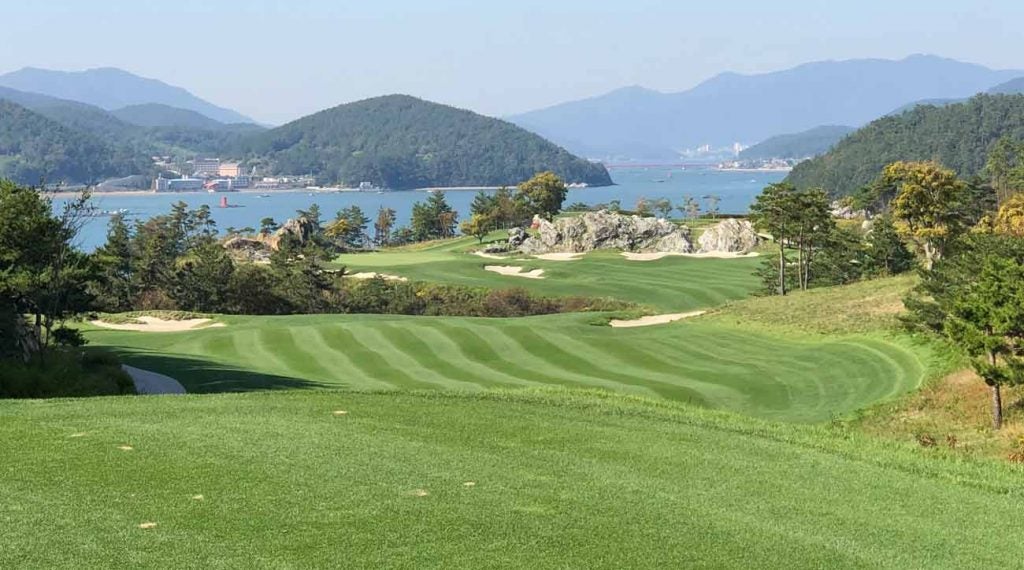
No. 7 is an arrow-straight short par-4, which from the correct tee for one’s ability is the rarest of modern holes; one that is bunkered with every tee taken into account, so that each level of player faces exactly the same challenge, without the hole feeling cluttered visually. This makes up for what could be seen as the lack of vista on this hole given the run we’ve just finished.
FOUR MUST-PLAY COURSES IN SOUTH KOREA FOR ANY GOLFER
If I had one more slight dig to take, it would be the course’s conditioning. While near perfect from behind a lens, I’d like to see them turn off the taps for a while and give the fairways a buzzcut. This would allow for a firmer bounce and roll to really take advantage of the incredible movement Kyle Philips laid over the holes. There are other areas which are simply personal preference — I don’t like the look of fairways that are striped like Centre Court at Wimbledon, nor do I like fairways which abruptly end with a collar of first cut, to then start as fairway again 20 yards later — but I’m nit-picking on what should be embraced as 18 holes worth of joyful assaults on the senses.
Nos. 8 and 9 both feature semi-blind tee shots and are arguably two of the stouter golfing tests. And then, since our eyes can’t take anymore “wow,” JB, who has the entire time been quietly grinning, leads us back into the clubhouse for an incredible 30-minute lunch, followed by 15 minutes or so in his favorite part of the resort: his music library.
We walk down the marble staircase on the side of the upper level to a room which features two sides of floor-to-ceiling glass that must measure 5,000 square feet in floor area. One whole wall is speaker, and not just any speaker, either. JB has two huge 1930s American speakers, which are arranged on either side of two equally impressive German speakers of the same vintage. These are somehow built into the wall but still on show. All analog and worth I don’t want to know how much money. The ceiling is specially made to allow the sound to reverberate around the room, held up on the final wall by fine art that hides a walk-in treasure trove of vinyls.
A classic Ave Maria is playing beautifully and not without volume as we sip our perfect tea and nibble on incredible chocolates. I ask JB what his favorite music is (kind of expecting The Beatles given his unique style, and as a nod to his fashion mogul past that has afforded him this incredible legacy to the Korean golfing landscape). “Red Army Ensemble!” he says loudly and proudly. If he’d given me a million guesses I wouldn’t have come up with that. At his request, a member of his excellent staff put on the aforementioned favorite. It was incredible — like the room was built for that piece, and listening to it there was an experience I’ll never forget. JB is not only the coolest man in golf but perhaps the most unpredictable I’ve spent a day with.
ADVERTISEMENT
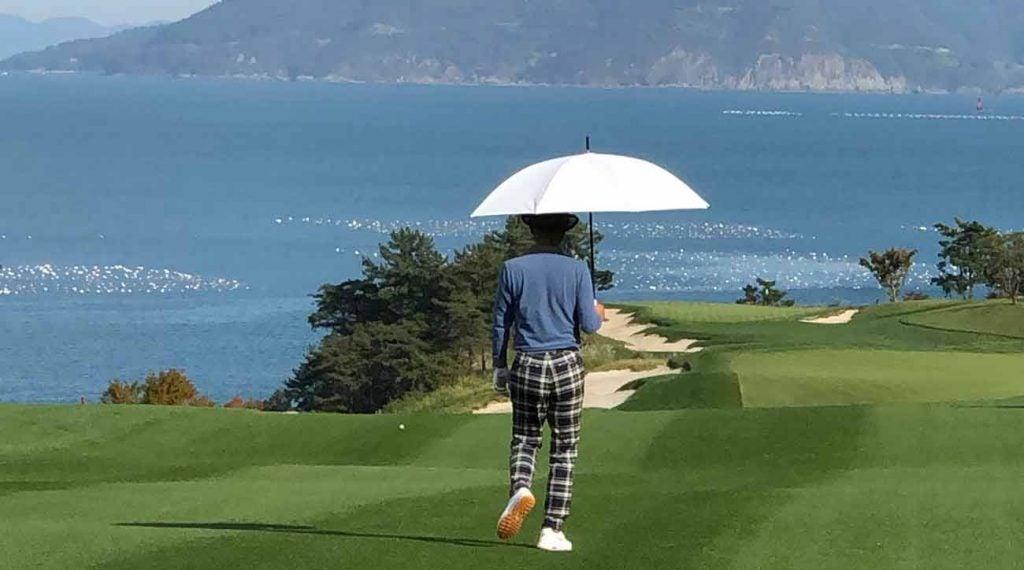
The back nine won’t be done justice by me saying it’s jaw-dropping, but you’ll have to take my word for it. No. 10 eases you back in, before turning back along the coast, now on the other side of the peninsula from the front nine. From the 12th tee you can see down to No. 13 too. It’s one of the truly special stretches of holes in golf, and is punctuated by the short 14th, before the tough uphill 15th, which somehow seems to play in a Cape-hole manner in terms of the tee shot, but then the hole almost comes back on itself, so harsh is the dogleg. You may think the long hitters could shoot over a bay to the green but some taller trees have sensibly been left to block out that 300-yard-plus, route. A good drive for me, cutting off as much as I dared, still left a long iron up the hill to a very well-protected green.
You then approach what was for me, the highlight of the round. You exit the 15th green to see a sharp-edged, perfect triangular mound of grass and glass. Imagine the bow of the Titanic from the movie poster, with nothing but sky and sea behind it, but instead of the deck you have grass, and instead of the brass rail you have glass! As we walk closer, wooden steps lead underneath the grass, which is actually the roof of another incredible modern tea house. There are floor-to-ceiling glass walls inside with gorgeous and highly-polished wooden flooring. Some minimalist furniture sets a space-age tone in this little pitstop on the back nine. Lewis Capaldi is pumping out of the Sonos speakers; the structure we are in seems like we’ve entered a giant glass shell, keeping all the music in, and we all just stay quiet and admire the incredible view.
That is, until JB bids us to take a seat. He has one more surprise. The staff bring out what I first thought was a giant scoop of mango sorbet, but it’s actually half-frozen persimmon fruit for each of us — almost burnt orange in color. Wow! The golf connection of Persimmon was lost in translation when I tried to explain it to JB but I doubled down that he needs this to be the club’s tradition. Top 5 golf course food status, right out of the gate.
After all that, we then walk to the tee of the par-3 16th, which might be the only 16th hole anywhere that can compete with Cypress Point’s in terms of beauty. Set on yet another small peninsula on this magical piece of land, it’s a 220-yard carry over the South Sea. Just wow. Then, when you arrive at the green, you look back and see just how dramatically perched the little tea house was that we were just sat in. Simply incredible.
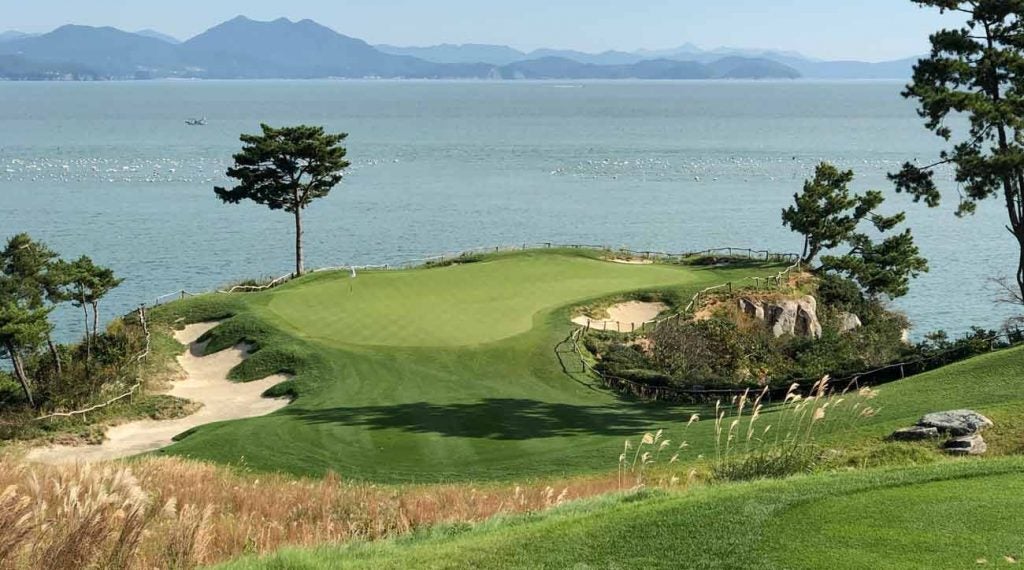
A solid par-4 on No. 17 ends with a cool and interesting green complex, before heading under one of the poured concrete bridges JB had made so no seams showed. The man’s level of detail knows no bounds.
No. 18 is a strong par-5 to finish, again showcasing the drama of the towering cliffs to the left of us, falling away to the sea hundreds of feet below.
At the end of the round, we walk back toward the marble staircase that leads to the clubhouse, that from this new angle looks like a 1950s depiction of a flying saucer hovering above us. JB stops me to point out a Korean inscription on the bottom step. “Guess what this says?” I know him well enough by now to know this 70-something Korean gentleman is not into the aged proverbs that I may have first expected.
“Stairway to heaven?” I venture.
He nodded, and smiled.
Simon Holt has been a member of GOLF’s course ranking panel since 2019, and has played 96 courses on GOLF’s current Top 100 list.
ADVERTISEMENT


